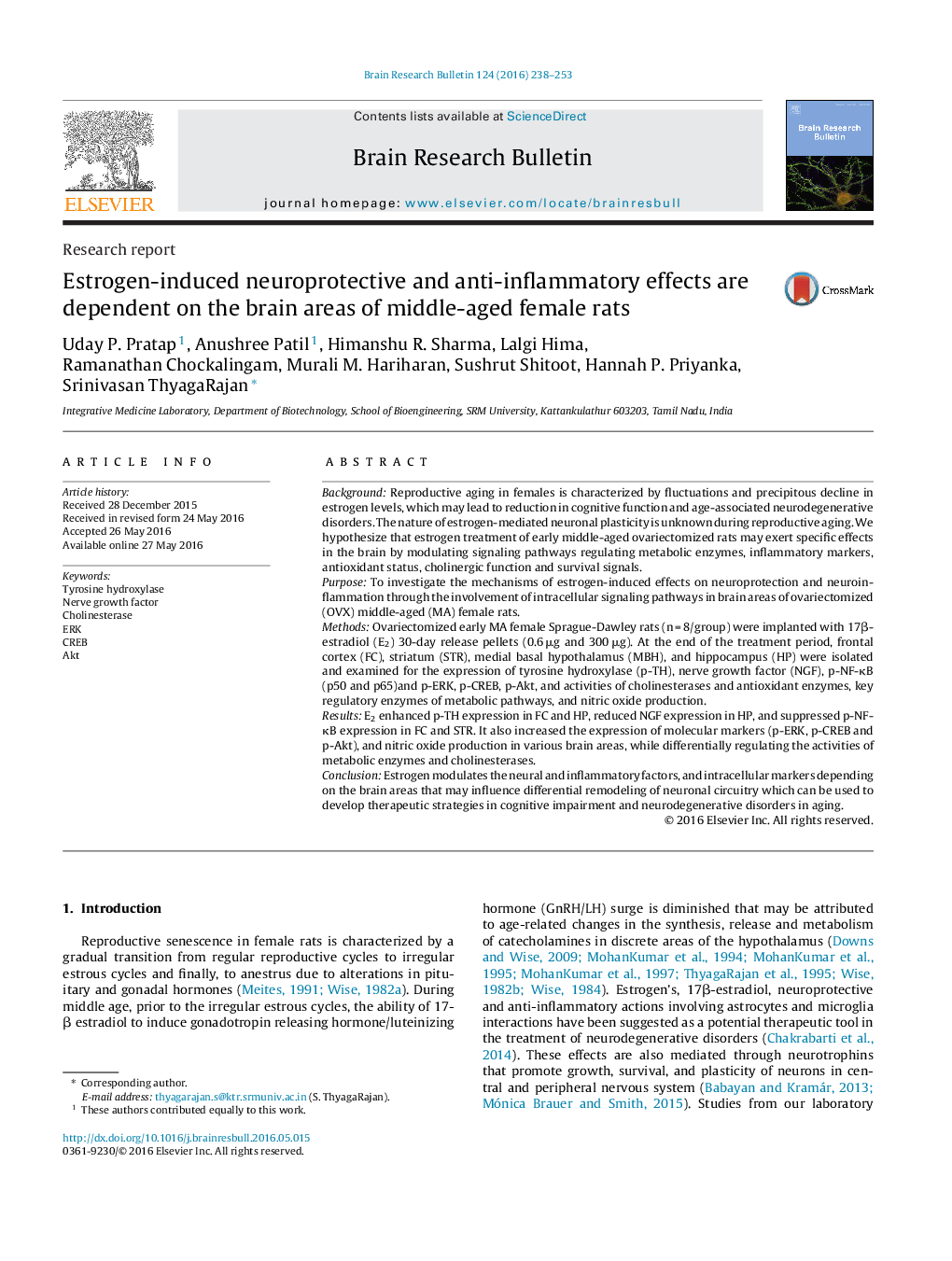| Article ID | Journal | Published Year | Pages | File Type |
|---|---|---|---|---|
| 6261612 | Brain Research Bulletin | 2016 | 16 Pages |
â¢Estrogen increases the expression of p-TH, p-ERK, p-Akt, and p-CREB.â¢Estrogen increases NO production and decreases TChE activity and p-NF-κB expression.â¢Estrogen treatment increases the metabolic enzyme activities.â¢Estrogen upregulates the antioxidant enzyme activities.
BackgroundReproductive aging in females is characterized by fluctuations and precipitous decline in estrogen levels, which may lead to reduction in cognitive function and age-associated neurodegenerative disorders. The nature of estrogen-mediated neuronal plasticity is unknown during reproductive aging. We hypothesize that estrogen treatment of early middle-aged ovariectomized rats may exert specific effects in the brain by modulating signaling pathways regulating metabolic enzymes, inflammatory markers, antioxidant status, cholinergic function and survival signals.PurposeTo investigate the mechanisms of estrogen-induced effects on neuroprotection and neuroinflammation through the involvement of intracellular signaling pathways in brain areas of ovariectomized (OVX) middle-aged (MA) female rats.MethodsOvariectomized early MA female Sprague-Dawley rats (n = 8/group) were implanted with 17β-estradiol (E2) 30-day release pellets (0.6 μg and 300 μg). At the end of the treatment period, frontal cortex (FC), striatum (STR), medial basal hypothalamus (MBH), and hippocampus (HP) were isolated and examined for the expression of tyrosine hydroxylase (p-TH), nerve growth factor (NGF), p-NF-κB (p50 and p65)and p-ERK, p-CREB, p-Akt, and activities of cholinesterases and antioxidant enzymes, key regulatory enzymes of metabolic pathways, and nitric oxide production.ResultsE2 enhanced p-TH expression in FC and HP, reduced NGF expression in HP, and suppressed p-NF-κB expression in FC and STR. It also increased the expression of molecular markers (p-ERK, p-CREB and p-Akt), and nitric oxide production in various brain areas, while differentially regulating the activities of metabolic enzymes and cholinesterases.ConclusionEstrogen modulates the neural and inflammatory factors, and intracellular markers depending on the brain areas that may influence differential remodeling of neuronal circuitry which can be used to develop therapeutic strategies in cognitive impairment and neurodegenerative disorders in aging.
